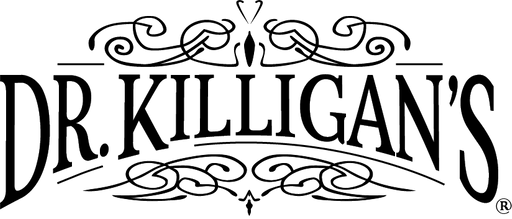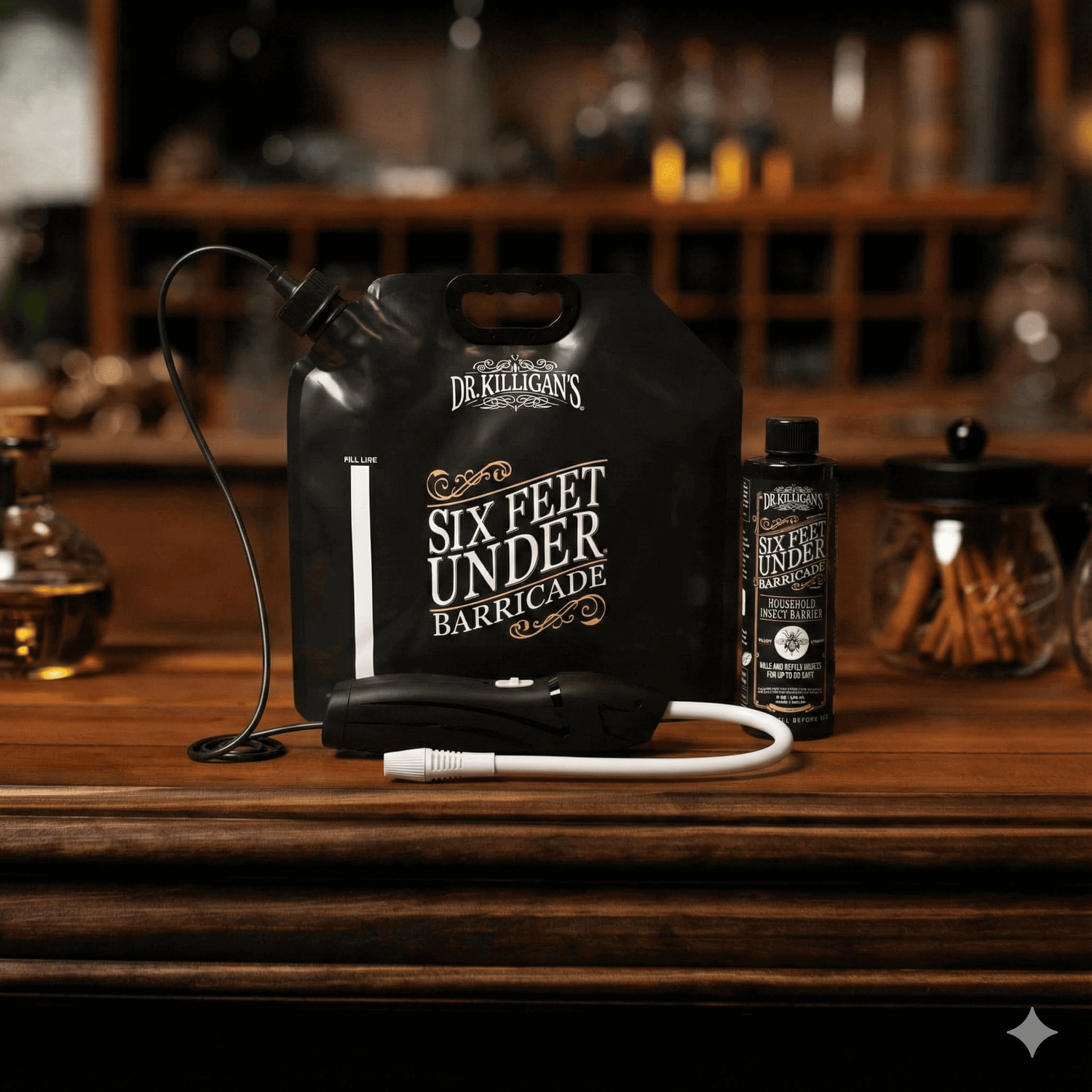Updated on July 15th, 2024
In today’s fast-paced world, the convenience of professional pest control services is undeniable. However, it's crucial to question whether these services align with your desire for sustainability and less-toxic living.
Dr. Killigan's is here to offer a different perspective on managing pests, one that respects the intricate balance of our ecosystem and prioritizes the health of your family and the planet.
Here's why rethinking your relationship with your pest control company could be one of the best decisions you make for your home and the environment.
1. Achieve natural balance without harsh chemicals

Contrary to fear-based marketing tactics often employed by pest control companies, coexisting with nature doesn't mean living in discomfort or compromising your home's cleanliness.
-
Use clove oil: Clove oil is known for its strong pesticidal properties and can be an effective natural deterrent for many pests. Read 'How beneficial is clove oil?' for more on its pest control benefits.
-
Use peppermint oil: Peppermint oil is a natural deterrent for many pests, including spiders and ants. Learn more in 'Kiss bugs goodbye: Your complete guide to using peppermint oil for pests.'
-
Utilize eastern red cedar: Eastern red cedar is known for its insect-repelling properties. Incorporate this wood into your home decor to act as a natural pest deterrent. Explore its uses in 'The insect-repelling power of eastern red cedar wood.'
- Apply Dust to Dust Plant-Powered Insect Powder: Create a safe, non-toxic barrier around your home with Dr. Killigan’s Dust to Dust. This effective alternative to diatomaceous earth can help you maintain a pest-free environment without harmful chemicals. Discover more in 'Dust to Dust: Your non-toxic insect killer & diatomaceous earth alternative.'
2. Recognize the critical roles of insects in ecosystems
It’s easy to overlook the vital role insects play in our backyards. Here are three key functions they perform:
-
Pollination: Many insects, especially bees, play a crucial role in the pollination of fruits, vegetables and flowers, supporting plant growth and food production.
-
Nutrient recycling: Insects help break down organic matter, returning nutrients to the soil, which is essential for plant health.
- Food source: They are a fundamental part of the food web, providing essential nutrition for a wide range of animals, including various birds, mammals and other wildlife.
Without these contributions, the delicate balance of our local ecosystems would collapse, leading to a domino effect of problems for all living beings, including humans.
Insecticides, while aimed at controlling pests, often do not discriminate, harming the very creatures we enjoy and rely upon for a healthy garden. The decline in insect populations has a ripple effect, impacting everything from plant pollination to the survival of animals reliant on these insects. Recognizing insects as beneficial contributors rather than nuisances highlights the need for alternative pest control methods.
3. Uncover the hidden dangers of insecticides

The widespread use of insecticides often harms not only the intended pests but also non-target species such as beneficial insects and reptiles. Reptiles, which play a critical role in natural pest control, frequently suffer from the collateral effects of broad-spectrum insecticides. This disruption can unintentionally lead to increased pest populations, undermining the initial purpose of using these chemicals.
More concerning is the introduction of these toxins into environments frequented by children and families. There is growing evidence that exposure to such chemicals poses long-term health risks, especially for children, raising significant concerns about the safety of commonly used pest control methods in spaces where families and children spend time together.
Note: To understand more about the potential links between pesticide exposure and serious health issues such as cancer, read 'Can exposure to pesticides cause cancer?'
4. Expose the myths of pest control
Pest control companies have mastered the art of convincing homeowners that their services are indispensable. However, this narrative often overlooks the power and efficacy of DIY pest management strategies that empower homeowners to take control. By understanding the behaviors and needs of pests, you can implement targeted, non-toxic measures that prevent infestations before they start, without needing ongoing professional intervention.
Educating yourself about the specific needs and weaknesses of common household pests enables you to create an unwelcoming environment for them, naturally reducing their numbers without harm to your family, pets or the ecosystem.
Explore these practical DIY strategies to start managing pests on your own:
-
Bees: Discover '5 ways to get rid of and repel bees,' offering safe and effective solutions for bee management.
-
Ants: Learn how to use diatomaceous earth and essential oils in 'Will diatomaceous earth kill ants?' and 'How to repel ants with essential oils.'
-
Cockroaches: Find out 'How to quickly get rid of American and German cockroaches,' detailing methods to tackle these common pests.
- Silverfish: Tackle these elusive pests with tips from 'How to get rid of silverfish,' providing effective methods for silverfish control.
These resources provide effective alternatives to traditional methods, allowing safe and natural handling of common pests. For more DIY tips and strategies across a wide range of insects, visit our full blog collection.
5. Embrace the benefits of DIY pest control

The inherent toxicity of conventional pesticides poses risks to more than just targeted pests; it can also affect human health and non-target wildlife. This has led to a growing shift towards DIY pest control solutions, which offer several clear benefits:
-
Health safety: DIY methods often use natural or less toxic ingredients, reducing the risk of adverse health effects associated with traditional pesticides.
-
Environmental impact: By avoiding synthetic chemicals, DIY pest control supports a healthier ecosystem. It prevents chemical runoffs that can harm soil health and water sources, protecting local wildlife and plant life.
-
Cost-effectiveness: Managing pests yourself can be more economical in the long run. It reduces the need for frequent professional services and allows you to tailor solutions specifically to your needs, minimizing waste.
-
Empowerment and education: Taking charge of your pest control educates you about the pests and their behaviors, enabling more targeted and effective interventions. This knowledge allows you to implement preventive measures, reducing the likelihood of future infestations.
- Customization: DIY pest control offers the flexibility to use methods that fit best with your household's specific conditions and ethical considerations. For instance, you can choose treatments that are safe for use around food preparation areas or sensitive plants in your garden.
Conclusion
Switching to DIY pest control is a commitment to a sustainable and health-conscious lifestyle. By moving away from traditional pest control services, you embrace a more natural approach that respects and enhances nature. This shift benefits your home environment and supports the broader ecosystem.
Dr. Killigan's offers a range of effective pest control solutions, including Six Feet Under Plant-Powered Insect Spray. Designed with safety, effectiveness and environmental responsibility in mind, this product provides peace of mind to health-conscious homeowners. It exemplifies how plant-powered solutions can effectively keep homes pest-free without the risks associated with synthetic pesticides.
Start making a positive change today. Explore Dr. Killigan's collection of eco-friendly pest control products and begin your journey towards a safer, greener and pest-free home.

















